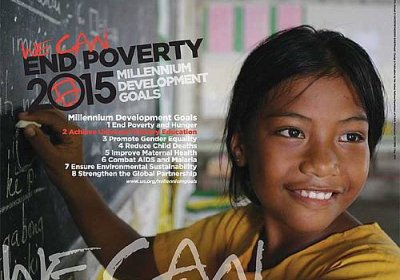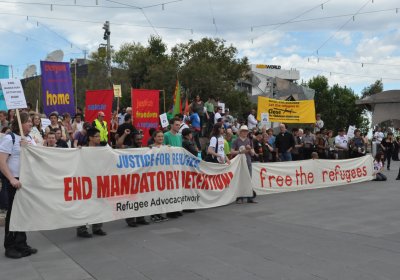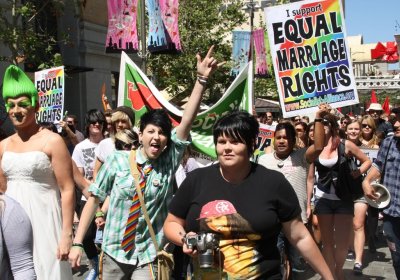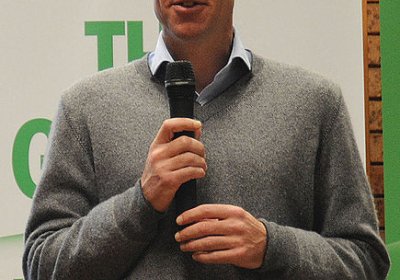When the United Nations Millennium Development Goals Summit took place in September, leaders from rich countries, as well as aid and research organisatons, met with Third World nations and “recommitted” to eight anti-poverty goals.
The goals were set in the Millennium Declaration in 2000, to be met by 2015. “Donor” countries pledged financial and technical aid to halve extreme poverty and reduce hunger, disease and illiteracy across the global South.
861
At first glance, you might have mistaken London’s packed streets on November 10 for a Mardi Gras carnival. There young faces and large grins, combined with incessant whistle-blowing, trumpet-blasting and drum-beating. All mixed together to form the din of student protest.
The noise took shape and all of a sudden burst from the centre of the crowd, picked up by everyone else: “No ifs, no buts, no education cuts” — the main chants of the 50,000 students marching forward from Westminster to the destination of the Milbank headquarters of the Conservative Party.
Demonstrators marched in Santa Cruz, the capital of Spanish-ruled Canary Islands just off the north-west African coast, on November 11 against the week-long assault on a protest camp in Moroccan-occupied Western Sahara.
James Tweedie wrote on Ositorojo.blogspot.com that day that more than 1000 people, many Sahrawis but mostly Spanish Canarians, marched through the city centre to demand an end to the police and military operation.
A High Court decision concerning the Refugee Status Assessment (RSA) process may undermine the government's offshore processing system.
On November 11, the court upheld a case put by two Tamil asylum seekers, who'd had their claims for asylum rejected.
Known as M61 and M69, the Tamils put the case that they had been denied the right to challenge their rejected claims in court.
The current two-stage RSA "offshore" process discriminates between asylum seekers who arrive by boat, known as "irregular arrivals", and those who arrive by other means, such as by plane.
From the left and the right of Labor, progressive MPs, members, unions and voters within the party are fighting back against Prime Minister Julia Gillard’s homophobic views on marriage. At the same time, huge sections of Labor’s support have shifted toward the Greens, or toward more radical, anti-capitalist alternatives.
On November 10, Paul Gibson became the 14th NSW Labor MP to announce he would not contest the March election. He said the ALP had abandoned its platform, and was simply driven by polls rather than principle.
The last Aboriginal residents of the Redfern Block will be evicted on November 19 to make way for a new development by the Aboriginal Housing Corporation.
Aboriginal Housing Corporation CEO Mick Mundine told ABC TV’s November 8 Lateline that the development involved commercial interests, which would put money back into the corporation to support affordable housing for local Aboriginal people.
Tasmanian Greens leader Nick McKim will introduce a bill into state parliament this week in a third attempt to have same-sex marriage legalised in Tasmania.
Labor Premier David Bartlett said he would not support the bill, believing same-sex marriage is a federal rather than a state issue. The latest Galaxy opinion poll showed 62% of Australians support equal marriage rights.
The National Tertiary Education Union (NTEU) at the University of New South Wales (UNSW) has voted for further industrial action, as vice-chancellor Fred Hilmer still refuses to negotiate in good faith on improvements to job security, pay and other conditions for staff.
A November 10 NTEU meeting voted for an indefinite ban on processing student results at the end of the second semester.
This is the second time staff have voted to carry out results bans this year. The dispute made headlines in July after management’s decision to stand down about 70 staff without pay.
GasLand
A film by director Josh Fox
In Palace cinemas from November 18
www.GasLand.com.au
In September 2006, theatre director and part-time banjo player Josh Fox received an unexpected letter in the mail: a natural gas company offering him $100,000 for permission to explore his family's upstate New York property, in the lush Delaware River Basin area.
The Refugee Advocacy Network organised a rally against mandatory detention on November 7, in response to the federal Labor government’s huge expansion of the system. About 400 people attended the protest.
A keynote speaker at the rally was visiting Afghan activist Malalai Joya. She drew the link between the occupation of her country (in which Australia takes part) and Afghans becoming refugees.
“Afghans are leaving because of catastrophe in their country”, she said. “You can’t bring democracy with occupation.”
A Union and Community Summer School, Winning Our Rights, will be held over December 10-11 at Melbourne Trades Hall.
Most left political traditions will take part in the school, which aims to strengthen unity on issues for which there is agreement.
The approach will be one of problem-solving. To usefully tackle the big challenges confronting the union movement — such as the fight against anti-union laws and the struggle for a sustainable economy — it begins by setting out the concrete questions these challenges pose to unions and labour movement activists.
More than 100 people attended a Brunswick candidates’ forum about planning issues on November 11. The high attendance reflected anger at the many high-rise buildings planned for the inner-Melbourne area. Six state election candidates addressed the meeting.
Socialist Alliance candidate Trent Hawkins said residents must be involved in decision-making. Planning minister Justin Madden has "called in" 230 projects so far this year, allowing him to overrule local council decisions. Hawkins said development decisions must involve the community.
- Previous page
- Page 2
- Next page










